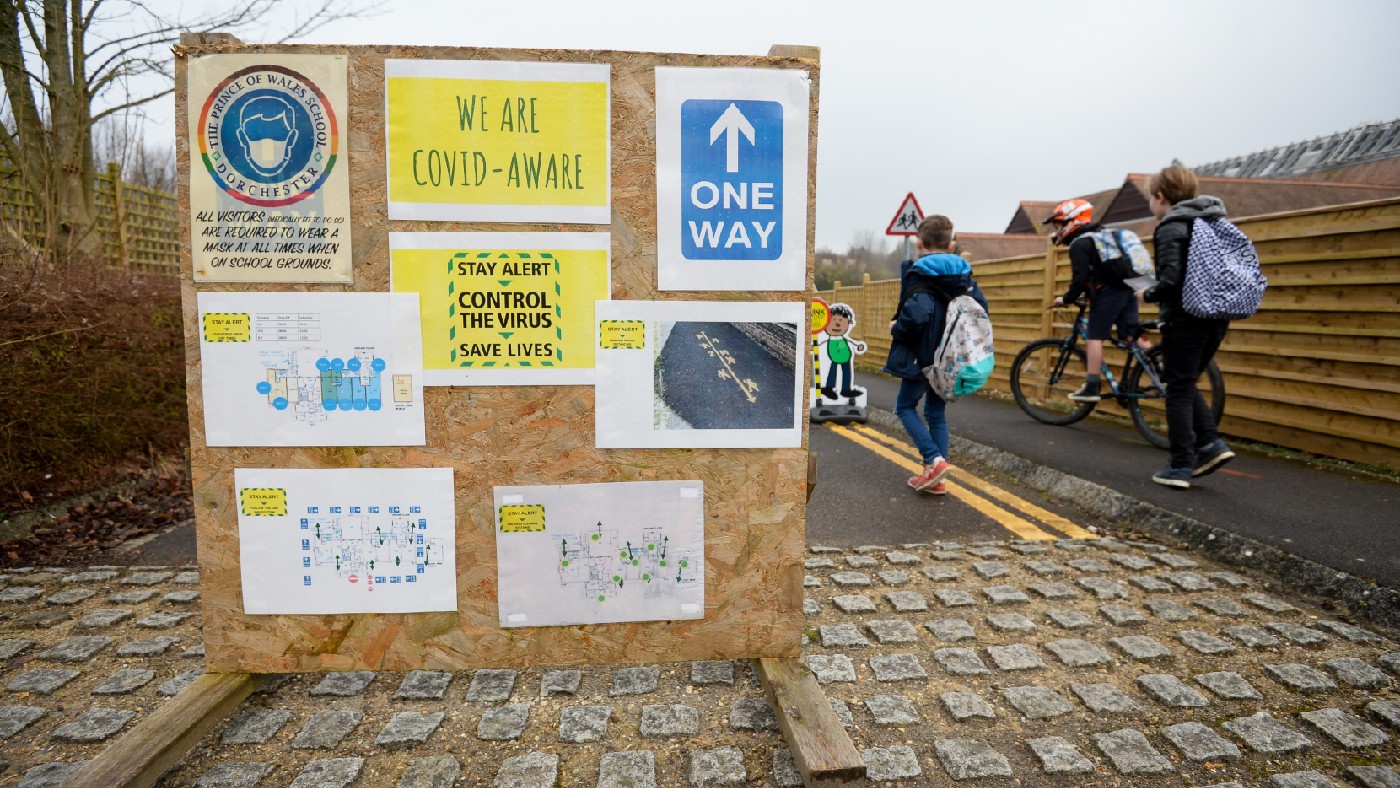Vaccinating children: it’s decision time for the health secretary as kids return to school
Sajid Javid readying NHS England to roll out jab for children over 12, amid fears infections will rocket

A free daily email with the biggest news stories of the day – and the best features from TheWeek.com
You are now subscribed
Your newsletter sign-up was successful
“Follow the science” was once the Government’s “mantra” on Covid, said Peter Walker and Nicola Davis in The Guardian. It is heard less often these days, because – on the sensitive question of vaccinating 12- to 15-year-old children – science and politics are leading in “very different directions”.
The Health Secretary Sajid Javid is now readying NHS England to roll out the jab for children over 12, amid fears that Covid-19 infections will rocket as children start returning to school this week. But the Joint Committee on Vaccination and Immunisation (JCVI) is still deliberating on the policy.
It’s true that the issue raises difficult questions. Children are mainly at very low risk of serious illness from Covid-19. And some JCVI members want further research on the potential side effects of the Pfizer and Moderna vaccines, which have been linked to rare cases of heart inflammation in young people. But the political pressure for a decision is mounting fast.
The Week
Escape your echo chamber. Get the facts behind the news, plus analysis from multiple perspectives.

Sign up for The Week's Free Newsletters
From our morning news briefing to a weekly Good News Newsletter, get the best of The Week delivered directly to your inbox.
From our morning news briefing to a weekly Good News Newsletter, get the best of The Week delivered directly to your inbox.
The scientists have been “sifting data” for long enough, said The Times. Now is the moment for the Government to “take the initiative and extend the vaccination programme”. Ministers are right to be concerned about the “spikes” in infection rates that have come with opening up society and the economy.
Worryingly, the number of those hospitalised with Covid in England recently reached 6,000 for the first time in five months, and “data shows that children, especially adolescents, can play a prominent role in transmission”. Germany, France and the US are all vaccinating their schoolchildren already. With the autumn term beginning and the risk of new variants, we can’t afford to waste any time.
Not so fast, said Naomi Firsht in The Daily Telegraph. Back in July, the JCVI concluded that the “minimal health benefits” of universal vaccination for children “do not outweigh the potential risks”. Then it reversed its advice, to recommend that 16- to 17-year-olds get the vaccine. Now a roll-out is being planned for secondary schools; and there are rumours that the vaccine could be given to 12- to 15-year-olds “without parental consent”. How on earth did we get here?
It’s quite wrong: “it is not the job of our children to protect us”. We should let children themselves decide whether to have the jab, said Victoria Richards in The Independent. Under-16s can agree to vaccination without parental consent–under the well-established “Gillick competency test” – if they fully understand its implications. Isn’t that the best and simplest way? Let the children make their own choices about their own bodies.
A free daily email with the biggest news stories of the day – and the best features from TheWeek.com
-
 Sepsis ‘breakthrough’: the world’s first targeted treatment?
Sepsis ‘breakthrough’: the world’s first targeted treatment?The Explainer New drug could reverse effects of sepsis, rather than trying to treat infection with antibiotics
-
 James Van Der Beek obituary: fresh-faced Dawson’s Creek star
James Van Der Beek obituary: fresh-faced Dawson’s Creek starIn The Spotlight Van Der Beek fronted one of the most successful teen dramas of the 90s – but his Dawson fame proved a double-edged sword
-
 Is Andrew’s arrest the end for the monarchy?
Is Andrew’s arrest the end for the monarchy?Today's Big Question The King has distanced the Royal Family from his disgraced brother but a ‘fit of revolutionary disgust’ could still wipe them out
-
 Growing a brain in the lab
Growing a brain in the labFeature It's a tiny version of a developing human cerebral cortex
-
 A Nipah virus outbreak in India has brought back Covid-era surveillance
A Nipah virus outbreak in India has brought back Covid-era surveillanceUnder the radar The disease can spread through animals and humans
-
 Trump HHS slashes advised child vaccinations
Trump HHS slashes advised child vaccinationsSpeed Read In a widely condemned move, the CDC will now recommend that children get vaccinated against 11 communicable diseases, not 17
-
 A fentanyl vaccine may be on the horizon
A fentanyl vaccine may be on the horizonUnder the radar Taking a serious jab at the opioid epidemic
-
 Health: Will Kennedy dismantle U.S. immunization policy?
Health: Will Kennedy dismantle U.S. immunization policy?Feature ‘America’s vaccine playbook is being rewritten by people who don’t believe in them’
-
 How dangerous is the ‘K’ strain super-flu?
How dangerous is the ‘K’ strain super-flu?The Explainer Surge in cases of new variant H3N2 flu in UK and around the world
-
 Vaccine critic quietly named CDC’s No. 2 official
Vaccine critic quietly named CDC’s No. 2 officialSpeed Read Dr. Ralph Abraham joins another prominent vaccine critic, HHS Secretary Robert F. Kennedy Jr.
-
 This flu season could be worse than usual
This flu season could be worse than usualIn the spotlight A new subvariant is infecting several countries